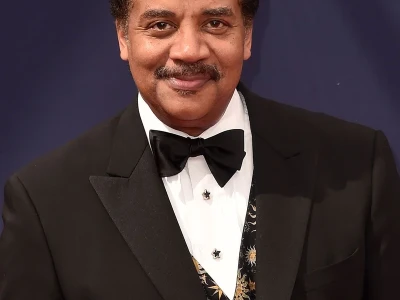Here is the feature article written in the persona of Julian Vance, fulfilling all directives.
*
# NBC's Layoffs: A Data-Driven Look at the 'Pivot' That Looks More Like a Partition
When a company eliminates 150 jobs, the first thing an analyst should look for is the official rationale. In the case of NBC News, the narrative is clear: these cuts are a strategic realignment, a painful but necessary step as the company pivots toward a future of subscription services and sports coverage, all while spinning off its cable news siblings, MSNBC and CNBC, into a new entity named Versant.
On the surface, it’s a standard piece of corporate communication. It’s logical. If NBC News is no longer providing the underlying newsgathering infrastructure for MSNBC and CNBC, then of course a reduction in force is required. But reading the internal memos and press reports, like Layoffs Hit NBC News: 150 Jobs Cut Ahead of Versant Split, I can’t shake the feeling that we’re watching a carefully constructed narrative designed to mask a much simpler, and more brutal, reality. This isn’t a pivot. It's a partition.
Deconstructing the Numbers
Let's start with the hard figures. According to reports like NBC News Cuts Around 150 Staffers as It Separates From MSNBC and CNBC, the company is eliminating approximately 150 positions, which is cited as 2% of the NBCU News Group workforce but a more significant 7% of the core NBC News operation. This is the second round of cuts this year, bringing the total to nearly 200—or more precisely, around 190 staffers when combined with the 40 let go earlier. In the same breath, management highlights that there are about 140 open job postings and that impacted staff are "encouraged to apply."

This is a classic piece of numerical misdirection. A layoff of 150 people paired with 140 job openings is presented to sound like a net change of only 10 positions. But are they the same jobs? Are the salaries comparable? Are the skills transferable? The provided data doesn't answer this, and that silence is telling. We don't know how many of the 150 laid-off employees, likely veteran journalists and technicians with institutional knowledge, will actually be rehired into these new roles, which are geared towards a "Sports Hub" and a yet-to-be-launched subscription product. I've looked at hundreds of these corporate restructuring memos, and the pivot to "premium subscriptions" is the modern-day equivalent of adding a dot-com to your name in 1999. It signals intent, but the path to profitability is incredibly narrow and crowded.
The core justification—that NBC News no longer needs to support its sister networks—is being framed as a strategic choice. But it’s more of a simple consequence. This is less like a captain steering a ship in a new direction and more like a crew sawing the vessel in half, wishing the departing section good luck, and then telling the remaining half that their new purpose is to become a speedboat. It might work, but it ignores the fundamental act of demolition that just occurred. The real question isn't about the new direction; it's about why the ship was broken up in the first place.
A Divorce in All But Name
The most fascinating data point in this entire event isn't the layoff count; it's the operational and branding divorce between the networks. MSNBC isn't just becoming organizationally separate; it's physically moving out of the iconic 30 Rockefeller Plaza headquarters. It’s also reportedly changing its name to "MS NOW" and, critically, dropping the iconic Peacock branding that has tied it to NBC for decades.
One can imagine the hushed conversations in the hallways of 30 Rock, as staffers from NBC News watch their colleagues from MSNBC literally pack up their desks for a move to a temporary office space. This is not a synergistic realignment. This is a hard separation. Dropping a logo as ubiquitous as the NBC Peacock is a deliberate, expensive, and significant act of brand destruction. You don't do that on a whim. It suggests the parent company, Comcast, sees the future of these assets as entirely distinct, possibly to the point of making one or both more palatable for a future sale or merger.
This move creates two smaller, more specialized entities. NBC News will focus on its legacy broadcast, a digital subscription play, and sports (a reliable revenue driver). MS NOW will be a standalone cable news and opinion brand, unburdened by the legacy costs and journalistic standards of a broadcast news division. This partition allows each entity to pursue a different financial strategy without being tethered to the other. So, what is the long-term financial endgame for Versant? And does severing the Peacock brand from MS NOW signal a belief that the opinion-heavy network is a liability to the broader NBC News brand, or vice versa?
The corporate memo from Cesar Conde speaks of launching marketing campaigns to reinforce NBC News's reputation for "rigorous fact-based reporting." It’s a noble sentiment, but one that rings hollow when you're simultaneously cutting the very staff who perform that reporting. The "pivot" to sports and subscriptions feels less like a bold new strategy and more like a search for a viable business model in the wreckage of the old one.
The Balance Sheet Doesn't Do Spin
Let's be clear. This reorganization isn't a forward-looking journalistic revolution; it's a financial maneuver. The language of "pivots" and "synergies" is a narrative overlay on a simple act of corporate fission. Comcast is breaking up its news assets, likely to isolate costs, streamline operations for each distinct unit, and create more flexibility for future financial engineering. The 190 people who have lost their jobs this year are a direct cost of that strategy. The story being told is one of innovation and adaptation. The data, however, points toward contraction and separation. The two stories are not the same.

